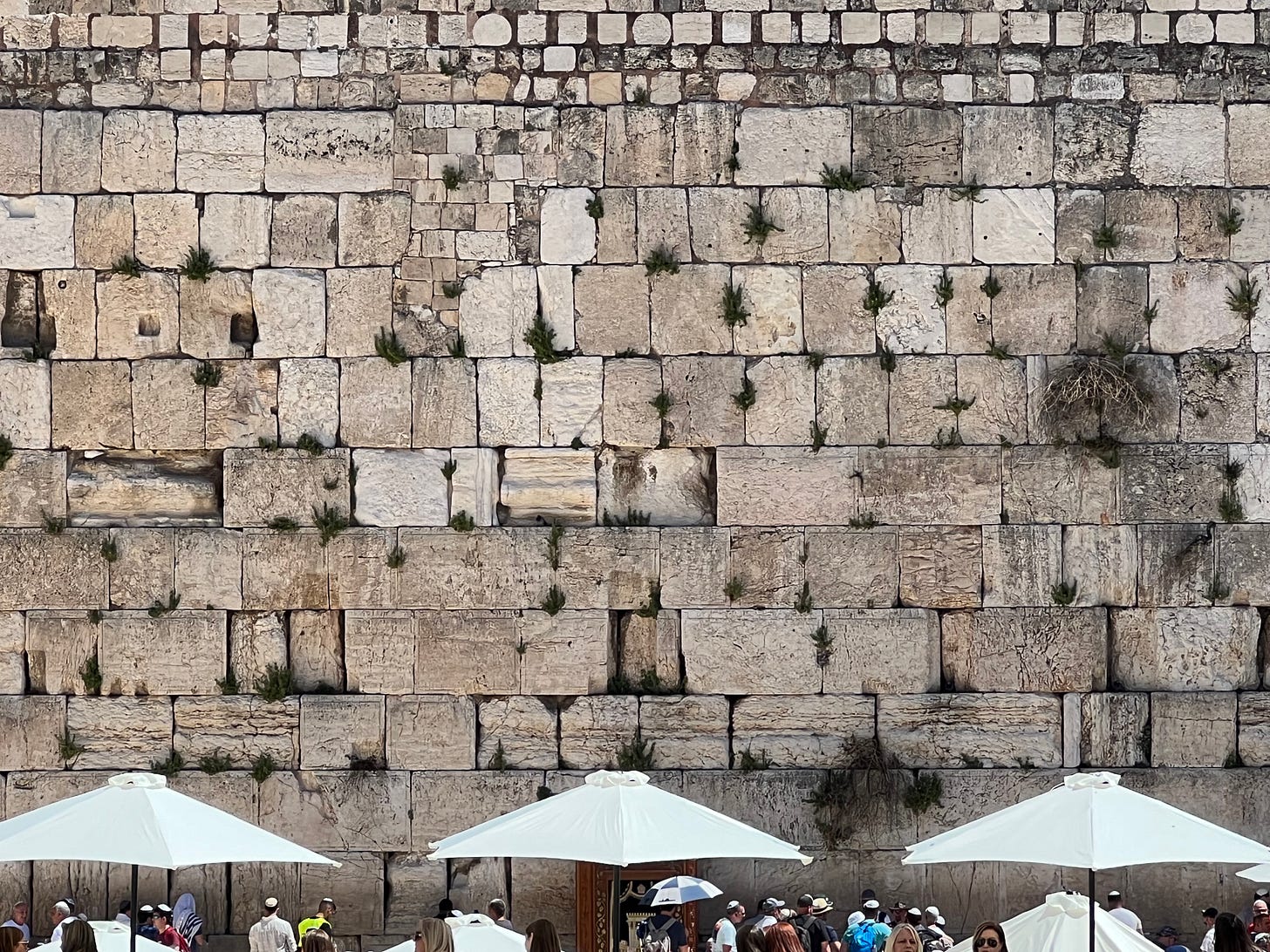While strolling through the historic streets of Jerusalem, I couldn't help but wonder what Jesus would think if he were alive today, witnessing the complex and diverse reality of this ancient city. Jerusalem's Old City holds great significance for people of various faiths, including the Western Wall for Jews, the Church of the Sepulcher for Christians, and the Dome of the Rock for Muslims. This small patch of land, less than a square kilometer in size, has been the center of countless conflicts throughout history, changing hands numerous times.
As I walked along the Via Dolorosa, the path believed to be the route Jesus took while carrying the cross, I pondered the immense impact Jesus had on the world. Born in the humble surroundings of Bethlehem around 4 BC, during a time when the Roman Empire sought to expand its dominion, Jesus emerged as a charismatic figure. Even from a young age, he was filled with curiosity about life and began preaching his message of non-violence and love to all who would listen.
However, Jesus' teachings didn't align with the rules and regulations imposed by the Roman authorities. As a result, he found himself taken captive and subjected to punishment under Roman law. Eventually, he was crucified at the Church of the Sepulcher, leaving an indelible mark on human history.
Today, as I contemplated the bustling streets of Jerusalem, I couldn't help but imagine the thoughts running through Jesus' mind if he were present in this ever-changing world. Would he be saddened by the conflicts and divisions that still plague the city he once walked? Or would he find hope in the coexistence of different cultures and faiths within these ancient walls?
Though we can only speculate on Jesus' perspective, his teachings continue to resonate with people across the globe. His message of peace, compassion, and understanding serves as a guiding light, reminding us of the importance of embracing our shared humanity amidst the complexities of the modern world.
From One came many!
After Jesus' crucifixion, Christianity remained relatively hidden from the 1st to the 3rd century. However, everything changed when Constantine the Great decriminalized Christianity and made it the official religion of the Roman Empire. This momentous shift allowed Christianity to flourish among the Romans, who had previously practiced various forms of paganism. As the Roman Empire fragmented and transformed into smaller territories, Christianity continued to gain strength.
Over time, history evolved, and people's beliefs changed. The simple message of Jesus spread across the globe, and as it did, the socio-political landscapes of countries began to transform. Pontiffs, influential priests, emerged from different regions, exerting their influence on policies and decisions. As the population grew, so did the reach of Christianity. Today, Christianity takes many different forms, including orthodox, protestant, and Catholic, with over 2.25 billion followers worldwide. While they all share a common origin, divisions have emerged over time due to the actions and decisions of those in power.
Throughout my travels, I have encountered numerous Christian institutions around the world. From the thousand-year-old Durham Church in England to the ancient basilica of the Vatican and the historic Church of Goa in India, I have witnessed the enduring presence of the Christian faith. As a Hindu growing up in India and attending Catholic schools, I have had the opportunity to connect with people of different backgrounds and explore the interconnectedness of faith.
As a physician, I have had the privilege of caring for patients from various religious backgrounds. It fills me with gratitude to provide care to individuals, embodying the spirit of compassion and healing that Jesus and other spiritual leaders preached. Faith-based institutions and spirituality play a vital role in counseling and supporting millions of people who find solace and guidance through their beliefs. It is remarkable to see how faith can contribute to longer and more fulfilling lives.
In summary, Christianity's journey from its humble beginnings to becoming a global phenomenon is a testament to its enduring power. It has touched the lives of billions of people, offering comfort, hope, and a sense of belonging. As a physician, I am grateful to witness the positive impact of faith and spirituality on individuals' well-being, echoing the teachings of Christ and other revered figures throughout history.
Faith and belief play significant roles in guiding and supporting millions of people through counseling, providing a sense of belonging, and shaping their identities, cultures, traditions, and aspirations. As human beings, our minds naturally seek comfort and connection with something greater than ourselves. In a world increasingly dominated by technology, the need to hold onto faith has become even more pronounced as lives become more individualized and isolated. Unfortunately, mental health issues are on the rise, partly due to the decreasing involvement of nuclear and extended families in supporting one another. Religion, with its potential for congregational gatherings and counseling, can provide much-needed community and support in such circumstances.
Jesus would have undoubtedly felt immense joy and fulfillment to witness the diverse expressions of Christianity and how his message has resonated with people worldwide. As someone who has a deep fascination with history, particularly ancient civilizations and religions, I am captivated by the remarkable energy emanating from these sacred places. It is a profound privilege to have visited the Holy Land, where Jesus was born, preached, and laid to rest. I consider myself incredibly fortunate to be where I am and to have the opportunity to pursue my passions.
Every day, I strive to expand my understanding of the world around me. The intricate relationship between faith and health is a subject of great complexity. Regardless of one's religious affiliation or personal beliefs, studies consistently demonstrate that faith can provide significant health benefits and contribute to improved overall well-being and longevity. However, it is essential to recognize that health is a multifaceted concept influenced by a range of factors, including social support, lifestyle choices, and access to healthcare.
By exploring the connections between faith, spirituality, and health, we can gain valuable insights into the holistic nature of human existence. It reminds us of the importance of nurturing our spiritual selves alongside physical and mental well-being. Ultimately, this comprehensive approach to health and fulfillment allows us to lead more enriched and purposeful lives.
Suman Manchireddy MD FACP FHM, Internal Medicine, Leesburg, VA.
Email : Care@ReliantMD.com
Disclaimer: This is purely informational and educational purposes only, seek medical advise prior to starting any testing or treatment regimen. The data presented here is researched extensively and has been condensed for a broader audience.






